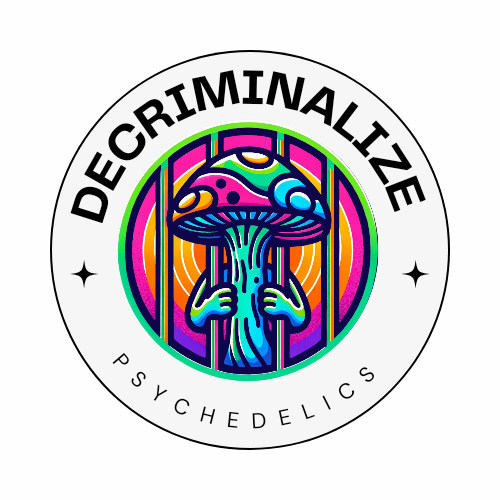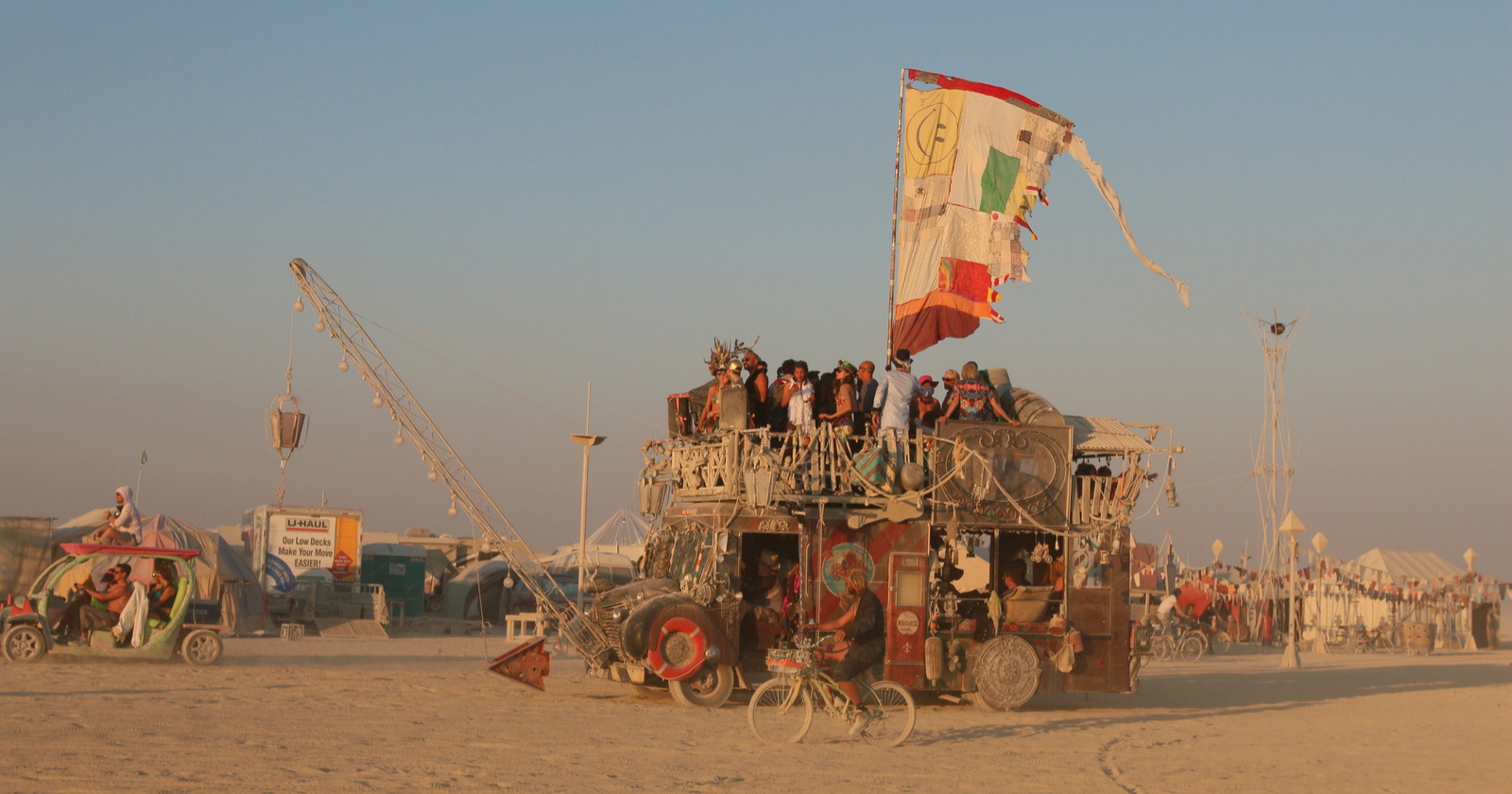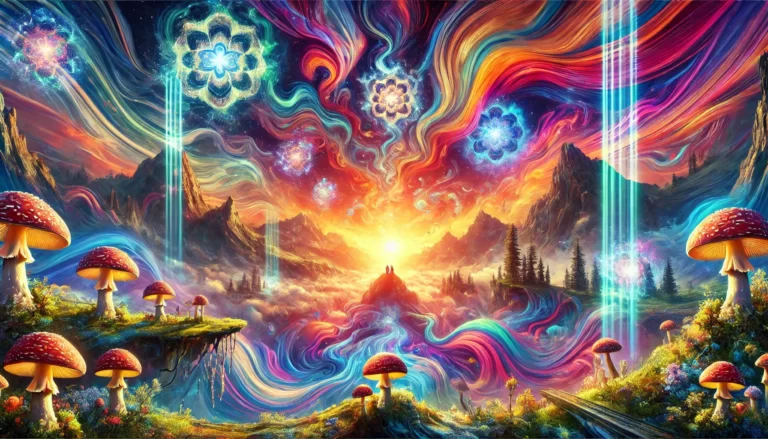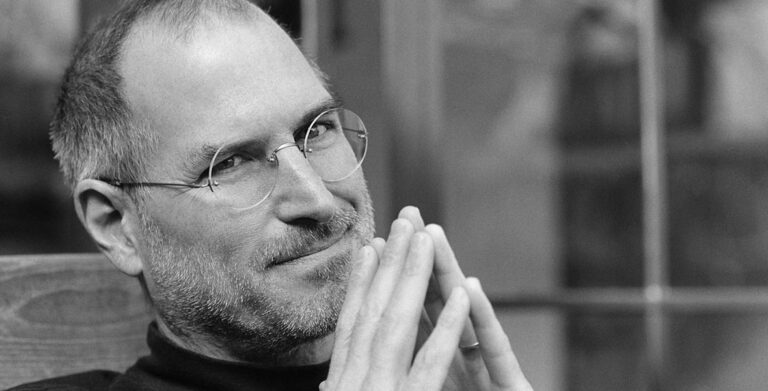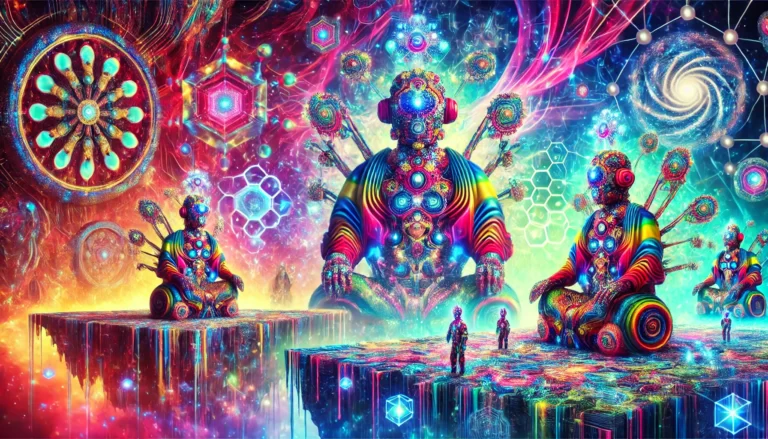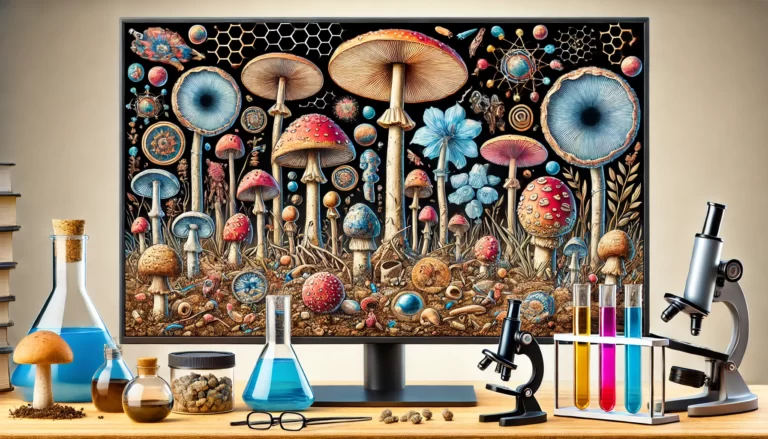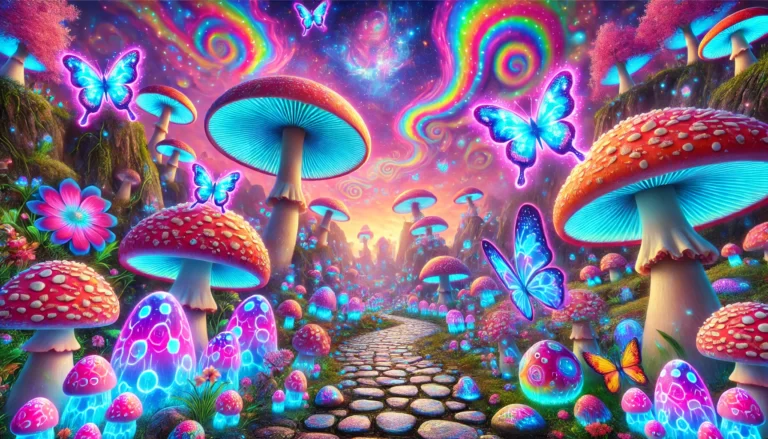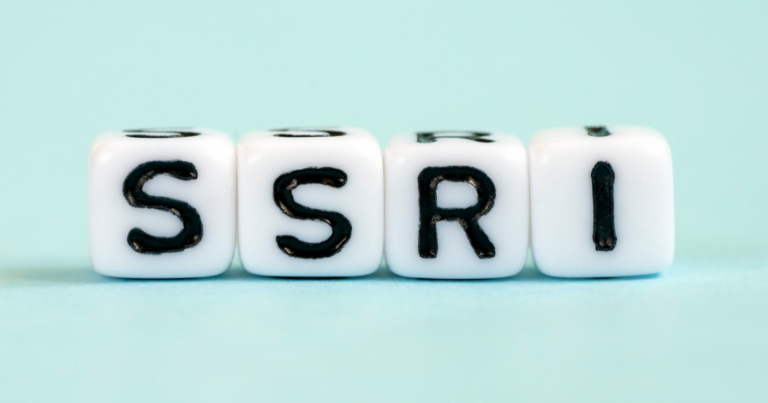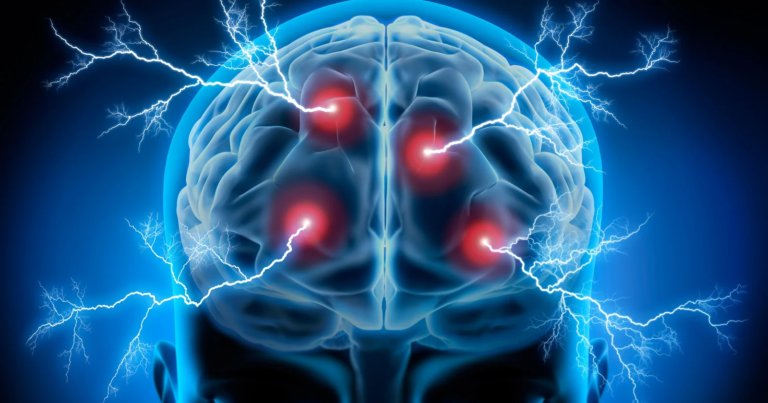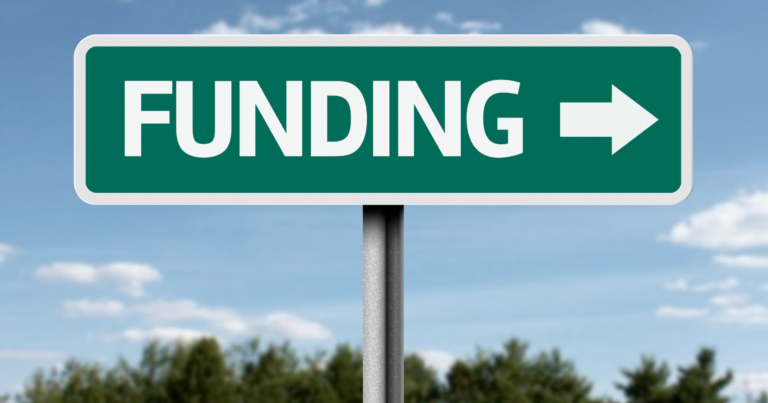Thinking about psychedelic festivals this year?
We’ll see you there.
Modern-day extravaganzas like Burning Man are a melting pot of art, culture, self-expression, and spiritual awakening… and a must!
These festivals have the iconic Woodstock to thank for paving the way.
Let’s take a trip down memory lane and look at how we got here today.
Buckle up and get ready for a groovy ride!
The Birthplace of Psychedelic Festivals
Let’s start our journey back in 1969, at a dairy farm in Bethel, New York.
This is where Woodstock, often considered the mother of all festivals, took root.
It wasn’t just a music festival – it was a cultural moment.
A time when peace, love, and music came together and created a phenomenon that would go on to shape the festival scene for decades to come.
Woodstock was about more than just the music.
It was about unity, freedom of expression, and challenging societal norms.
For many, it was their first taste of a counterculture lifestyle, their first experience of a psychedelic festival.
The festival’s vibe, its ethos, and its impact were so profound that it left an indelible mark on the psyche of an entire generation. And it set the stage for the transformation and evolution of future psychedelic festivals.
But remember this – Woodstock wasn’t planned as a psychedelic festival. It evolved into one.
And that’s an important part of our narrative as we move forward.
From Spectator to Participant
Fast forward a few decades to my first psychedelic festival experience, which wasn’t quite Woodstock, but had its own charm.
I found myself at a lesser-known festival in the Pacific Northwest.
As an observer, I was there out of sheer curiosity.
The vibrant colors, the pulsating music, the collective energy – it was all so foreign yet fascinating.
I remember standing amidst the sea of tie-dye shirts and flower crowns, watching people dance with abandon, completely engrossed in the music and the moment.
There was a palpable sense of camaraderie and unity that I had never felt before.
And then something shifted.
I stopped observing and started participating. I danced, I laughed, I connected with strangers who quickly became friends. It was exhilarating and liberating.
That festival marked a turning point for me. It showed me the power of these gatherings – not just as a spectator but as an active participant.
And it’s this personal transformation that mirrors the evolution of psychedelic festivals over time.
They’ve moved from being mere spectator events to immersive experiences that audiences actively participate in – a transition we’ll explore further as we journey from Woodstock to Burning Man.
From Music to Multidisciplinary
When Woodstock took the world by storm in 1969, it was primarily about the music.
Sure, there was a social and cultural revolution brewing beneath the surface, but music was the main attraction.
Fast forward to today, and you’ll find that modern psychedelic festivals like Burning Man have evolved into multidisciplinary events.
Music still plays a vital role, but it’s now accompanied by a plethora of other artistic expressions.
From monumental sculptures and intricate installations to performance art and interactive exhibits, these festivals are now a vibrant showcase of creativity and innovation.
They’re places where artists and attendees alike can push boundaries and explore new forms of expression.
This shift towards multidisciplinary art isn’t just about adding variety to the festival experience.
It’s a reflection of the evolution of the counterculture movement itself – from a focus on music as a form of protest and expression, to a broader exploration of art as a tool for social commentary and change.
A Celebration of Individuality
As we move further along the timeline, another key evolution in psychedelic festivals becomes apparent – the rise of radical self-expression.
In the early days of Woodstock, self-expression was present but it was more of a collective expression – a shared sense of rebellion against societal norms.
But, in recent years, this has evolved into a much more individualistic form of self-expression.
Festivals like Burning Man have become a canvas for attendees to express their unique identities and celebrate their individuality.
This is evident in everything from the eccentric outfits and body art to the personalized camps and art cars.
Every element is an expression of the individual’s creativity, their beliefs, their passions.
This shift towards radical self-expression is a testament to the evolving ethos of psychedelic festivals.
They’re no longer just about challenging societal norms as a collective, but also about celebrating the uniqueness and individuality of each participant.
More Than Just a Party
There was a point in my life when I viewed these psychedelic festivals as just an escape – a break from the humdrum of everyday life, a chance to let loose and party.
But over time, my perspective shifted.
These festivals began to represent something much deeper for me.
They became spaces for introspection, for personal growth, for transformation.
I remember standing in the heart of Burning Man one year, surrounded by a whirlwind of lights, music and energy.
Amidst the chaos, I found a strange sense of calm.
I began to question my choices, my values, my direction in life.
That festival was a turning point for me – it sparked a journey of self-discovery and self-improvement that continues to this day.
And I’m not alone in this experience.
Ask any seasoned festival-goer and they’ll tell you – these psychedelic festivals are more than just parties. They’re transformative experiences that challenge you to look within and inspire you to grow.
From Concert-goers to Burners
Another significant shift in the evolution of psychedelic festivals is the sense of community they foster.
In the Woodstock era, the attendees were primarily concert-goers who gathered to enjoy the music and shared ideals.
Today, the picture is quite different. Attendees of modern psychedelic festivals like Burning Man don’t just consider themselves as festival-goers, but as part of a larger community – often referred to as “Burners”.
This community extends beyond the duration of the festival.
It’s a year-round network of individuals who share similar values and a common ethos.
They support each other, learn from each other, and often collaborate on projects, both within and outside the festival context.
This sense of community and belonging is a powerful aspect of today’s psychedelic festivals. It not only enhances the festival experience but also contributes to the personal growth and transformation that many attendees seek.
From Rebellion to Conscious Awakening
The most profound evolution of psychedelic festivals lies in their purpose. In the days of Woodstock, these gatherings were primarily a form of rebellion against the mainstream, a platform to voice dissent and demand change.
Today, while they still serve as a platform for expression and protest, their purpose has deepened.
These festivals now aim to facilitate a conscious awakening among attendees.
Through their immersive experiences, vibrant art, and strong sense of community, they inspire people to question, to reflect, to transform. They ignite a deeper awareness about oneself, about others, and about the world.
This conscious awakening is the essence of modern psychedelic festivals.
It’s what sets them apart from other events and it’s what continues to draw people from all walks of life, year after year.
The Power of Transformation
The journey from Woodstock to Burning Man is a testament to the transformative power of psychedelic festivals.
These gatherings are more than just events; they’re catalysts for change. They’ve morphed from being mere concerts to vibrant platforms for art, culture, self-expression, and personal growth.
The evolution of these festivals reflects the shifting consciousness of society – from rebellion against the mainstream to a quest for deeper awareness and conscious awakening.
Psychedelic festivals have come a long way since their inception.
But regardless of their form or location, they continue to serve as spaces that inspire individuals to look within, question norms, and celebrate their unique identities.
As we reflect on this evolution, we are reminded of the profound impact these gatherings can have – not just on those who attend, but on society as a whole.
Whether it’s sparking a cultural revolution in the 60s or facilitating personal transformation today, psychedelic festivals continue to play a pivotal role in shaping our world.
And that’s something worth reflecting on.
